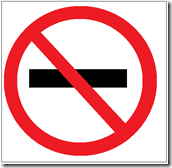I have never used an em dash. I don’t even know how to make an em dash. But you can still find them in my books.
/Noreen Malone of Slate argues against the em dash.
The problem with the dash—as you may have noticed!—is that it discourages truly efficient writing. It also—and this might be its worst sin—disrupts the flow of a sentence. Don't you find it annoying—and you can tell me if you do, I won't be hurt—when a writer inserts a thought into the midst of another one that's not yet complete? Strunk and White—who must always be mentioned in articles such as this one—counsel against overusing the dash as well: "Use a dash only when a more common mark of punctuation seems inadequate." Who are we, we modern writers, to pass judgment—and with such shocking frequency—on these more simple forms of punctuation—the workmanlike comma, the stalwart colon, the taken-for-granted period?
I’ve written five novels. Two memoirs. Dozens of short stories. Thousands of blog posts. Countless pieces for newspapers, magazines, websites, and the like.
I have never used an em dash. Not once. Honestly, I don’t even know how to make an em dash. I’d have to Google it.
I agree with Malone. A period has almost always suffices. Occasionally a comma. Sometimes a set of parentheses.
This is not to say that you won’t find an em dash in my novels, because you will, dear reader. They are few and far between, but if you have the time to search, a handful of em dashes can be found.
But please know that when you do, it was placed there by an editor who felt that it served the story better than my original choice of punctuation.
Like I said, I don’t even know what combination of keys produces such a thing.
